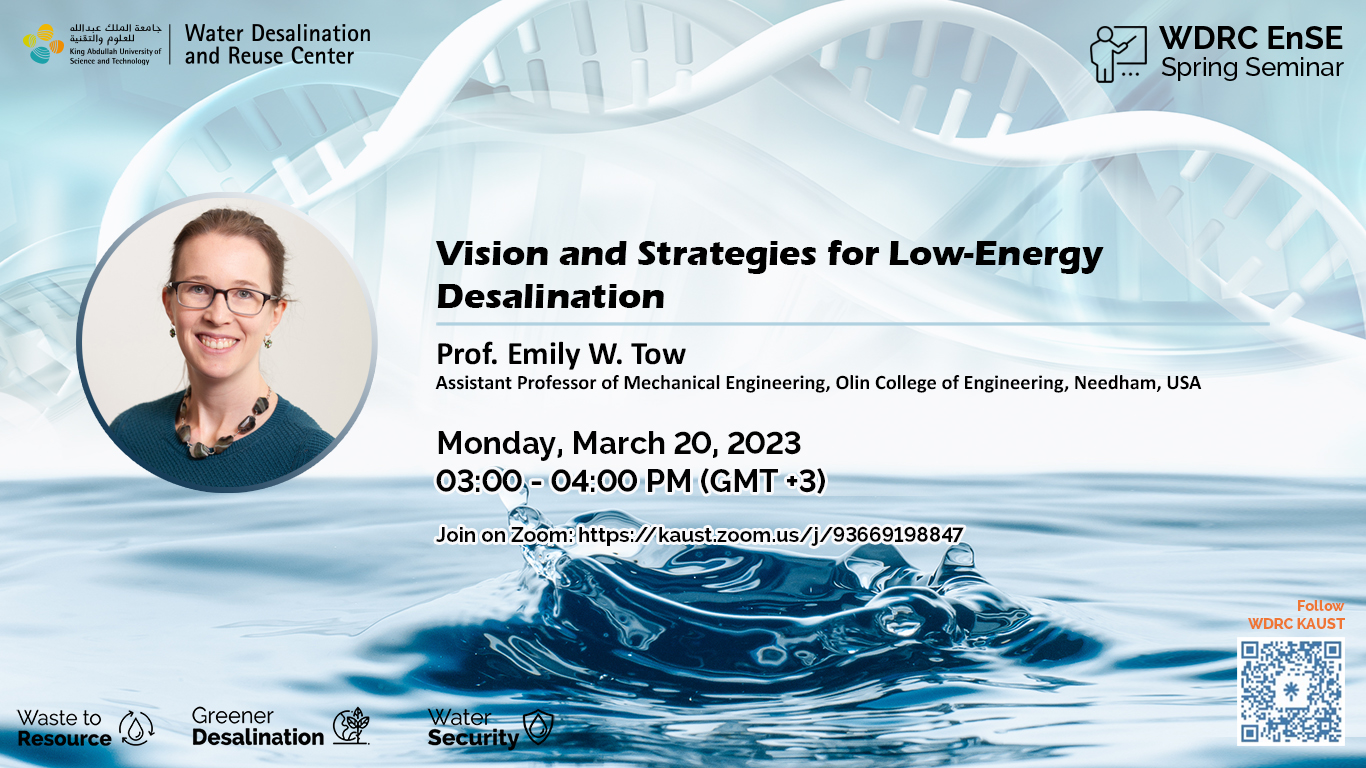



Abstract:
While the need for water is endless, the earth’s capacity for greenhouse gases is limited, so we must reduce the energy use and emissions associated with desalination. In this talk, I will share a set of strategies and research directions for reducing energy consumption by more than 80%. By prioritizing wastewater reuse, we can provide clean water for a fraction of the energy used by seawater desalination. By better understanding the mechanisms of membrane fouling and cleaning, we can design better pretreatment, desalination, and cleaning processes for lower overall energy consumption. By redesigning the traditional reverse osmosis (RO) process to operate dynamically (e.g., in batch mode), we can minimize energy use and increase water recovery while pushing the limits of scaling resistance. I will focus on aspects of my research that align with these goals, including in situ visualization of fouling mechanisms and a batch RO pilot system for increasing recovery in water reuse to more than 95%.
About the Speaker:
Dr. Emily Tow is an Assistant Professor of Mechanical Engineering at Olin College of Engineering in Needham, USA. Dr. Tow’s research focuses on understanding membrane fouling mechanisms and improving energy efficiency in water reuse and desalination through the development of time-variant reverse osmosis (RO) systems. She recently led a team that piloted a batch RO brine concentration system with a flexible bladder, winning the national More Water Less Concentrate competition. She has more than 20 peer-reviewed journal publications and patents in the fields of heat transfer and water treatment. Her teaching focuses on thermodynamics, heat transfer, and fluid mechanics, and she loves helping students find joy and utility in learning these topics and applying them in sustainability contexts. Dr. Tow received her Ph.D. in Mechanical Engineering from MIT and was an ITRI-Rosenfeld Postdoctoral Fellow at Lawrence Berkeley National Lab.